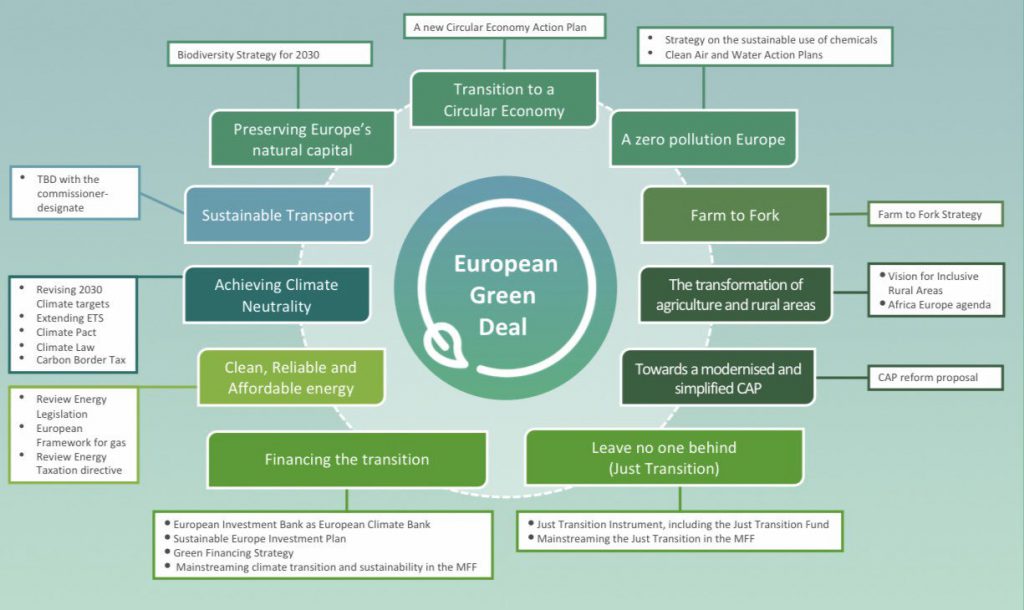The Green Deal addresses the following priorities: clean energy supply; and increasing the value given to protecting and restoring the of natural environment, to sustainable use of resources and to improving human health. Many different policy instruments – from hard regulation to coordination mechanisms and economic incentives – will be put in place to build the overall framework and in each respective policy areas.
The EU Green Deal lays down EU growth policy framework to be adopted in the next five years. It aims at building a decoupled economy from the use of natural resources, and without net emissions of greenhouse gasses in 2050. This strategy is presented in the Communication published by the European Commission on 11 December. If needed, the Commission will further update the Green Deal after adoption and implementation of the first policy responses. Some challenges may be addressed at EU level, while others require global coordination and participation – e.g. loss of biodiversity. It will be crucial to include and engage the financial sector to achieve the desired transformation of EU economy and society. Overall, EU policy responses require intense coordination and a holistic approach. As part of the Green Deal, the European Semester – the macro-economic coordination mechanism of the EU – will integrate the sustainable development goals (SDGs).
The European Commission will propose the first ‘European Climate Law’ no later than March 2020. This will enshrine the 2050 climate neutrality objective in legislation. By June 2021, the Commission will also review and propose to revise all relevant climate-related policy instruments in order to ensure fair and effective carbon pricing throughout the economy. This new framework that will be adopted in the next five years should promote more sustainable economy and society.
EU model for separate waste collection
Waste sector will undergo crucial transformation and innovation along with all other relevant sectors of EU economy. The legislative framework has been just revised. Implementation is calling. 65 % of waste must be recycled by 2035 and separate collection, says the Commission in the Green Deal, simplifies waste management for citizens and ensure cleaner secondary raw materials for businesses. The Commission will therefore propose an EU model for separate waste collection.
In March 2020, the Commission will adopt a new circular economy action plan. A key aim of the new policy framework will be to stimulate the development of markets for circular products and secondary raw materials. The action plan will also include a regulatory framework for biodegradable and bio-based plastics.
The Common Agricultural Policy should lead to use of sustainable practices, such as precision agriculture, organic farming, agro-ecology and agro-forestry. Farmers should be rewarded and incentivized to improve nutrient management and restore soil organic matter. In spring 2020, the Commission will present the Farm to Fork strategy and launch a broad stakeholder debate paving the way to formulating a more sustainable food policy. EU’s environmental agenda for the next five years include also a biodiversity strategy to be presented in March 2020, and, in 2021, a Zero Pollution action plan for air, water and soil.
For the full list of initiatives, download the annex to the Commissions's communication.

